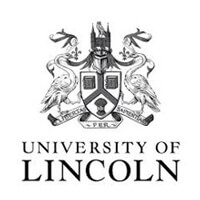fees waived
Biomedical Science, BSc (Hons), with industry placement
University of Lincoln, United Kingdom
Subject ranking
UK / CUG 45th
UK / CUG 45th
UK / CUG 48th
Costs
food & rentS$16.8K / year
Entry requirements
Scholarships
Unlimited quantity
Unlimited quantity
Unlimited quantity
Unlimited quantity
Limited quantity
Limited quantity
Information
Code
Code
Intakes
Website (External)
Programmes
Information
Duration
2028
Course summary
The BSc (Hons) Biomedical Science degree at Lincoln is designed to lay the foundations of knowledge needed to understand and investigate human disease. It aims to prepare students for careers as biomedical scientists in the NHS or as scientific researchers. This course offers a broad scientific base for the investigation of human diseases. Students study topics such as haematology, clinical biochemistry, cellular pathology and medical microbiology. A multidisciplinary approach incorporates lectures, seminars and laboratory-based work. Students may develop transferable skills in information retrieval, data analysis, problem-solving and critical thinking. There is also an optional overseas field trip available in your final year. This will allow you the opportunity to study and test biological phenomena in their natural environment. The first year introduces the key areas of biomedical science, including cell biology, genetics and disease. Students have the opportunity to develop the research skills that are vital for a practising scientist. In the second year, students study pharmacology, immunology and disease biology and can be introduced to analytical techniques. In the final year, students examine topics such as infection science, haematology and transplantation, in addition to completing an individual research project. For the most up to date module information, please visit the course page for this programme on our website. Some programmes provide you with the opportunity to focus your study in a particular area through optional modules. Timetabling arrangements may limit the availability of some optional modules to some students. As the options often reflect staff research interests, they may alter over time due to staff availability. The way students will be assessed on this course will vary for each module. It could include coursework, such as a dissertation or essay, written and practical exams, portfolio development, group work or presentations to name some examples. Throughout this degree, students may receive tuition from professors, senior lecturers, lecturers, researchers, practitioners, visiting experts or technicians, and they may be supported in their learning by other students.Modules
Assessment method
The first year introduces the key areas of biomedical science, including cell biology, genetics and disease. Students have the opportunity to develop the research skills that are vital for a practising scientist. In the second year, students study pharmacology, immunology and disease biology and can be introduced to analytical techniques. In the final year, students examine topics such as infection science, haematology and transplantation, in addition to completing an individual research project. For the most up to date module information, please visit the course page for this programme on our website. Some programmes provide you with the opportunity to focus your study in a particular area through optional modules. Timetabling arrangements may limit the availability of some optional modules to some students. As the options often reflect staff research interests, they may alter over time due to staff availability.
A local representative of University of Lincoln in Singapore is available online to assist you with enquiries about this course.

